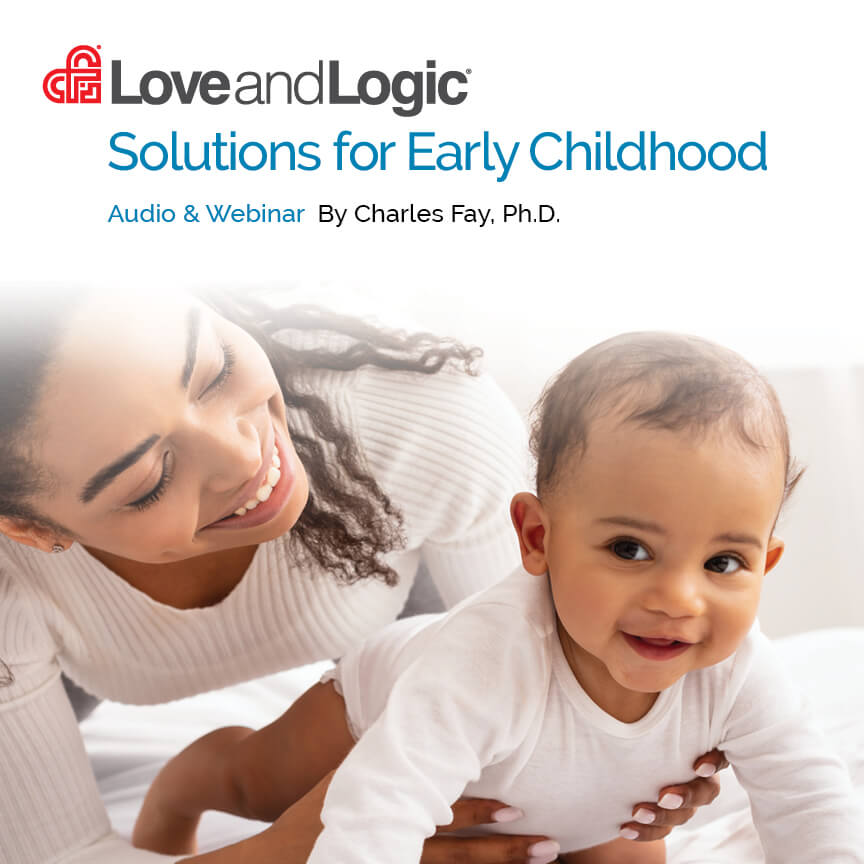Kids face more life-and-death decisions today than ever before. They are being challenged at earlier ages with scarier choices about drugs, alcohol, sex, and violence. Clearly, most children are growing up in a more challenging world than we ever imagined, and the consequences of their mistakes are more serious than ever. Of great concern is the fact that many children are not equipped with the survival skills necessary for making wise decisions about these pressures.
The Love and Logic approach allows kids to experience the consequences of their decisions, which is exactly how the real world works. If they do not learn at an early age that they are responsible for the consequences of their decisions, then as adults entering the real world, they will learn these lessons the hard way, which can be very costly.
Let the Consequences Do the Teaching
For years, Love and Logic has taught parents to let the consequences do the teaching. This teaching is based on the two simple Rules of Love and Logic, which form the foundation of all Love and Logic techniques. Here are the two rules:
Rule 1: Adults take good care of themselves by setting limits without anger, lectures, threats, or repeated warnings
Rule 2: When a child causes a problem, the adult hands it back in loving ways.
The second rule focuses on the consequences of a child’s behavior. The adult must hold the kids accountable for the consequences of their actions and the child must solve the consequent problems in such a way that there are no problems for others. The key to the success of implementing this technique, as with all Love and Logic techniques, is empathy. The adult must always begin with genuine empathy before delivering consequences.
Start Early When the Price Tag Is Small
We believe it is never too early to start using consequences to help kids make good decisions. From a Love and Logic perspective, we believe that you can start as soon as they can spit their pureed food or crawl away from you when you are changing their diaper.
There are some myths about working with young kids that sometimes cause adults to wait before working with their little ones. Let’s take a quick look at two common myths.
Myth #1. Discipline and Learning Require Language
Some think that kids cannot learn or benefit from positive parenting discipline until they are able to converse. Kids begin learning from a very early age, before they can communicate verbally. We believe that wise parents begin Love and Logic early, with simple loving actions—not words.
Myth #2. A Little Child Cannot Remember and Learn
Parents soon learn never to underestimate what children can remember. For example, kids will never let you forget that you promised them their favorite snacks!
We believe if parents start holding kids responsible for their behavior at an early age, then they can establish a solid foundation that will help kids learn to make good decisions throughout their lives.
To Protect or Not Protect
It is important for parents to understand that they must truly allow the consequences do the teaching. In other words, they must not overly protect their kids. Instead, they must let their kids experience the consequences, even if the consequences are unpleasant, disappointing, or costly. These effects are crucial for inspiring kids to learn how to make good decisions and avoid making poor decisions.
However, parents must use common sense and intervene to protect their kids whenever their safety or the safety of others is at risk. We cannot eliminate all risk from our children’s lives, but we must intervene when there is the risk of serious harm to our kids or to others.
Conclusions
Great parents do their best to allow their children the freedom to make mistakes, experience the consequences of those mistakes, and solve the problems that arise from those mistakes. Parents must also protect and rescue them from time to time if the circumstances warrant intervention.
The ultimate goal is to raise kids who understand the relationship between their behavior and the consequences of their behavior, and who know how to make good decisions so that they experience positive instead of negative consequences. Then they will grow into responsible, respectful, and resilient adults.
Thanks for reading!











